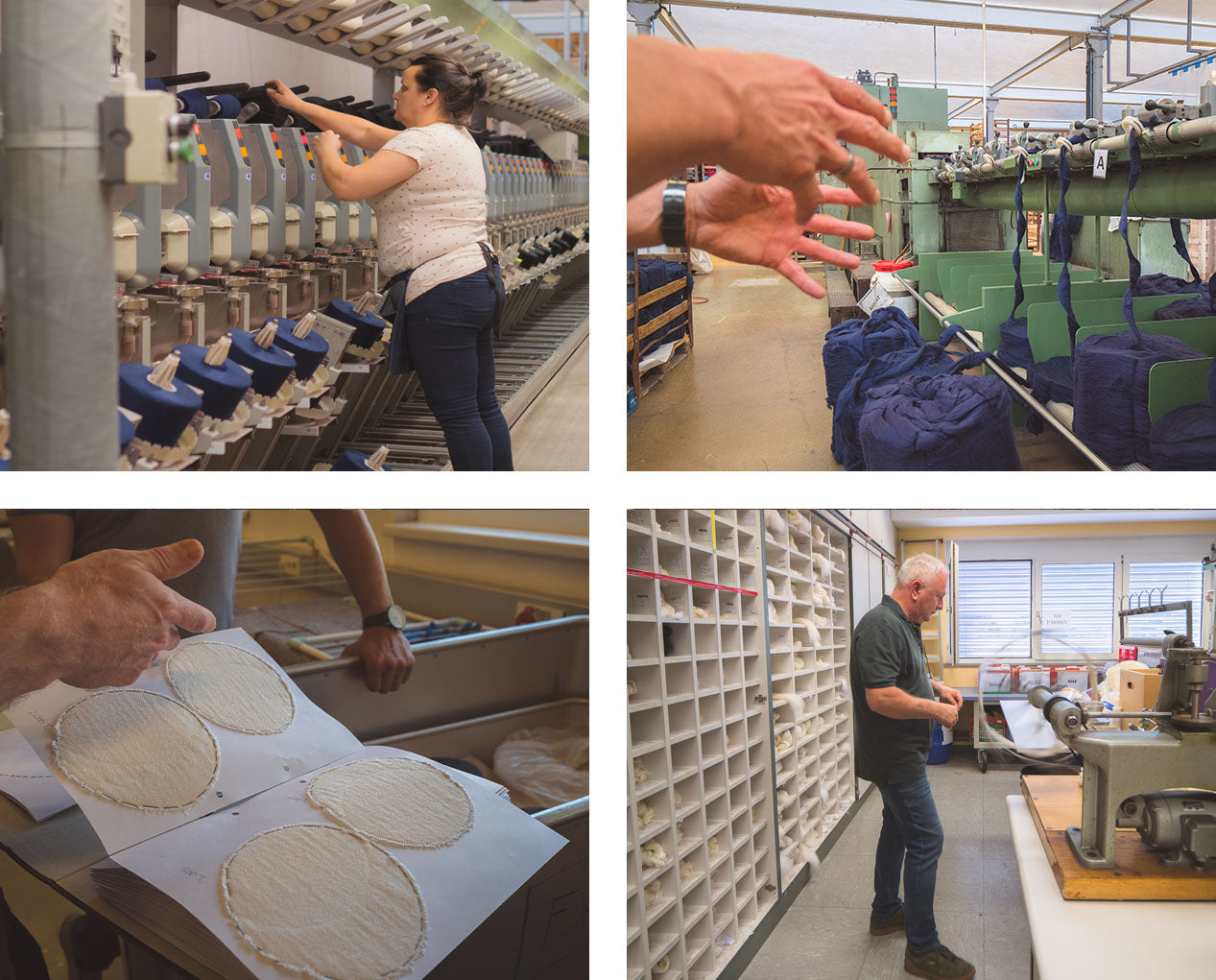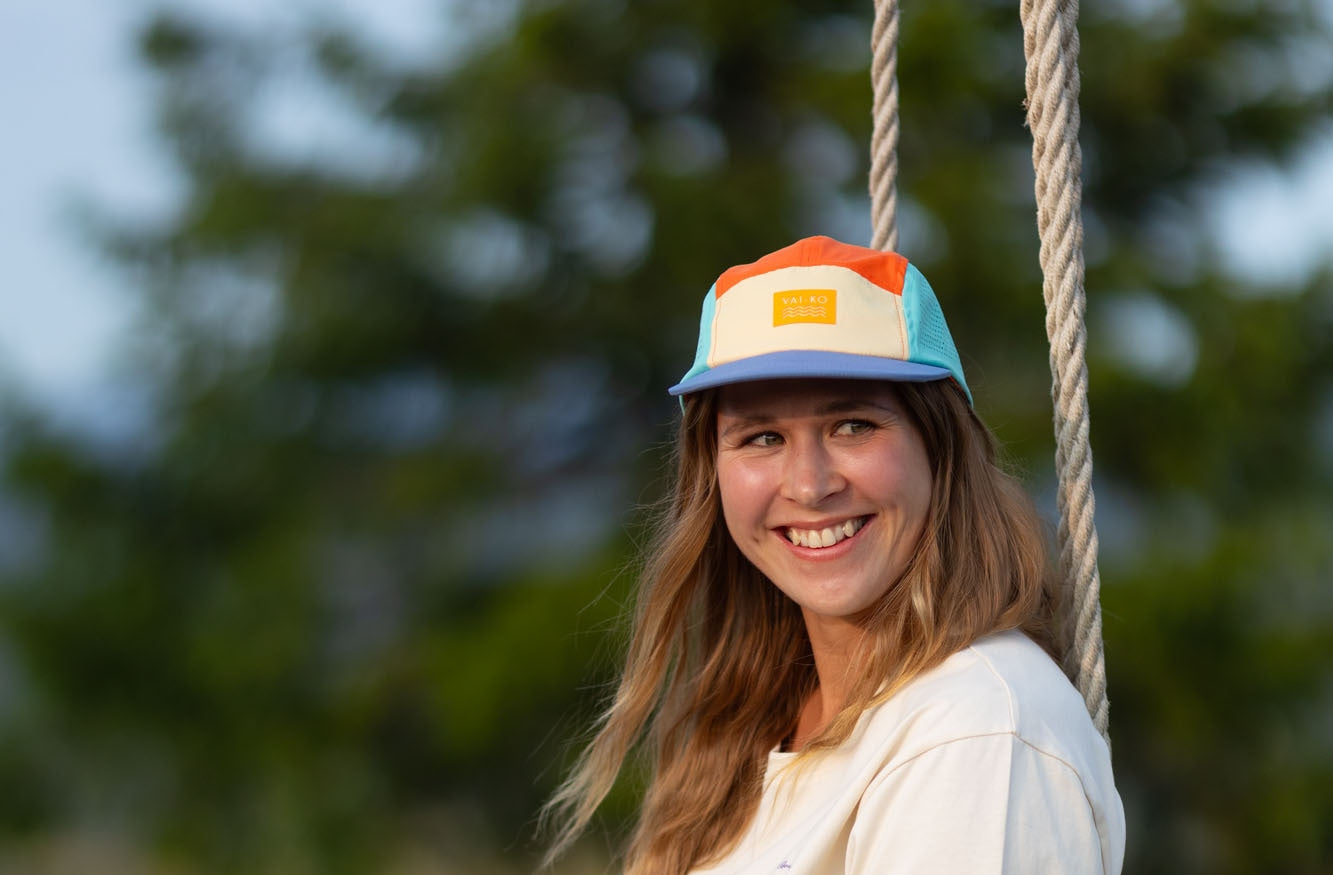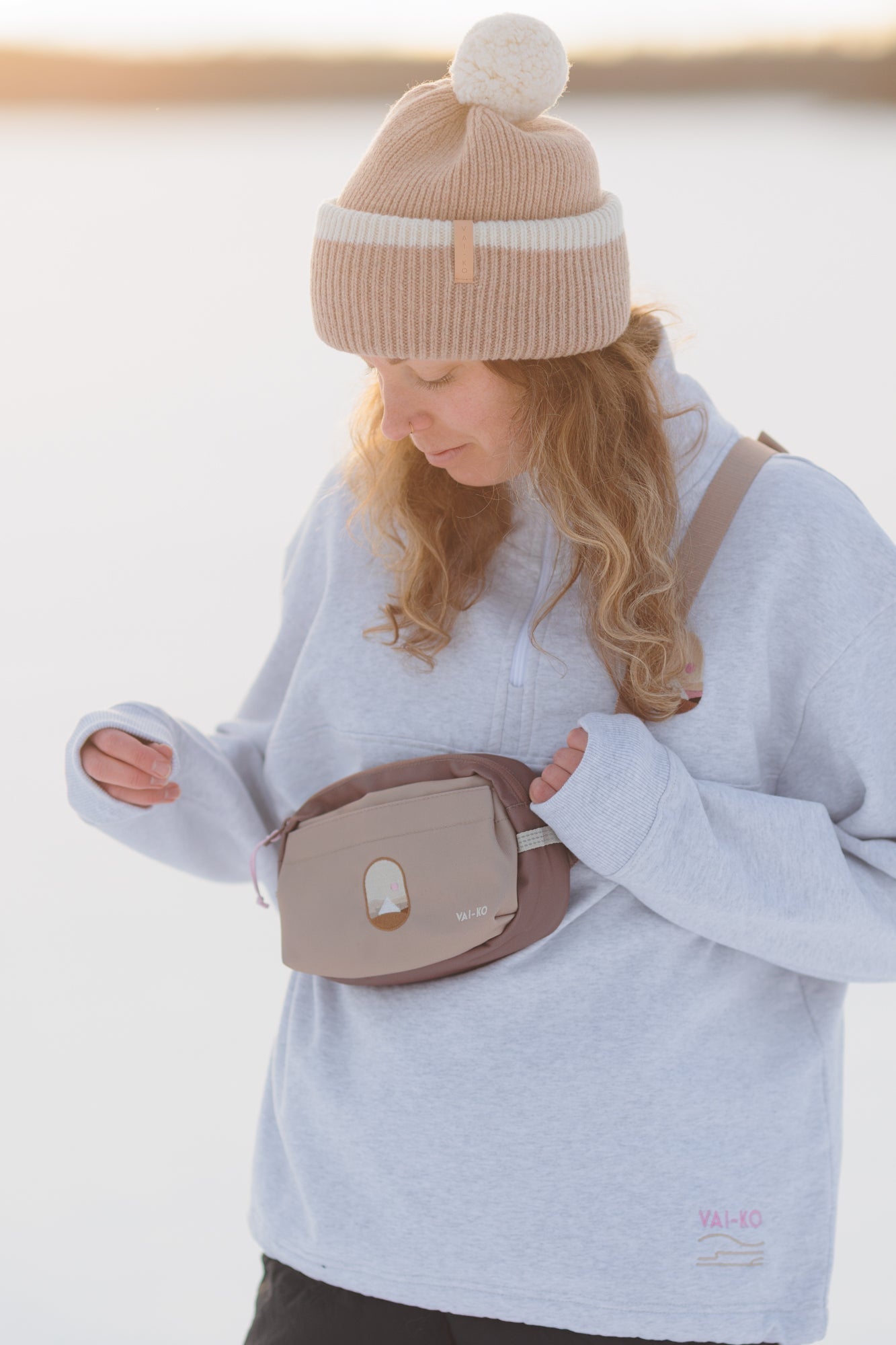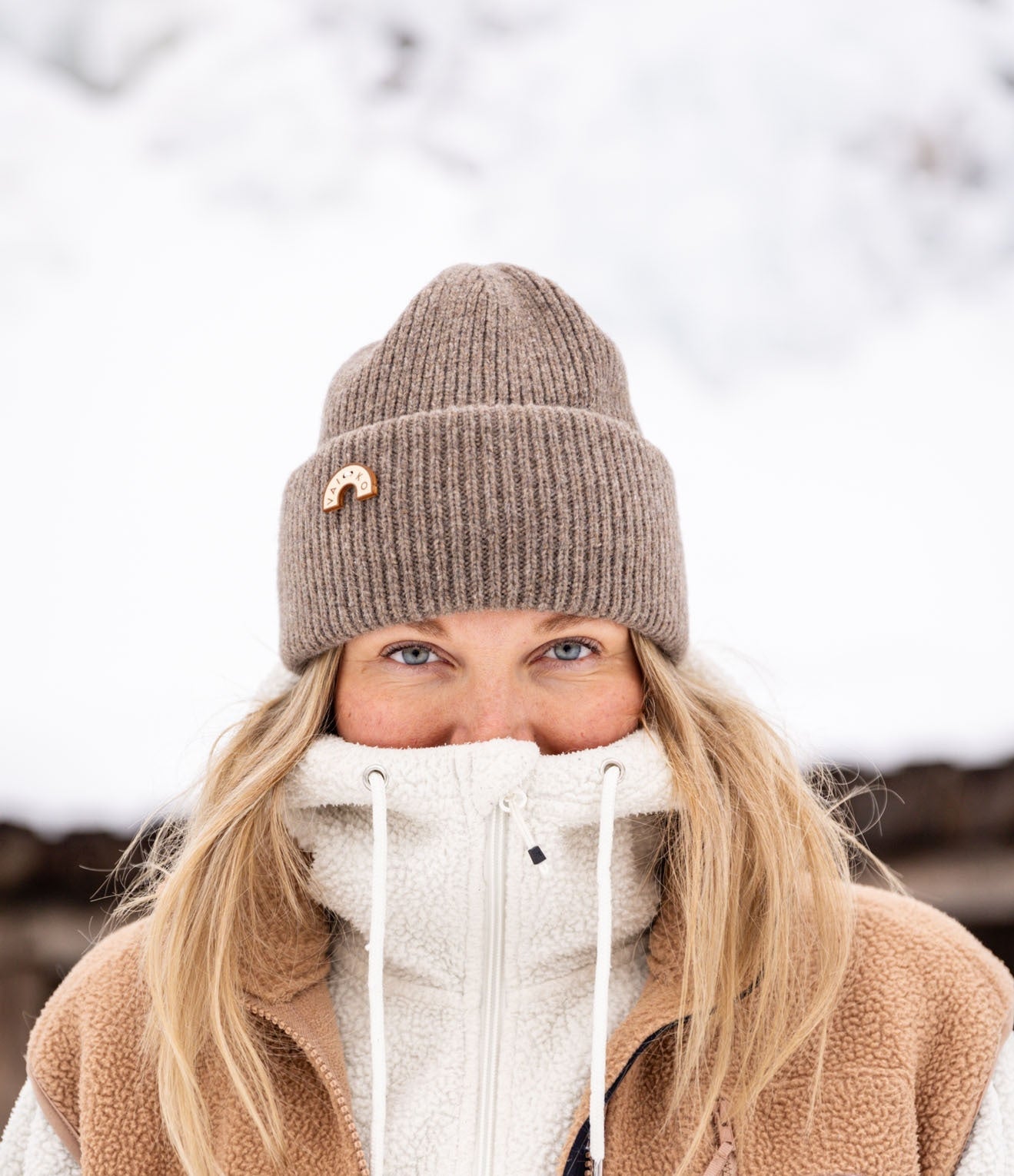Quality & Materials
Organic Merino Wool
Less than 1% of all wool production in the world is as sustainable as our organic merino wool is. We use GOTS certified organic merino wool for our
beanies. For our socks, we use traceable Nativa certified merino wool. Both qualities are sustainably sourced and transparently produced. The wool is mulesign free and farmed in respect for animal rights.
Merino wool has multiple advantages. To start with, it’s the ultimate insulator both in cold and warm weather. The merino wool fibre creates tiny air pockets which insulates the wearer from outside temperatures - adapting to the weather conditions and thus keeping the cold away but also having a cooling effect when needed.
Merino wool transports moisture and has highly absorbent features: it keeps you warm and dry even when it’s wet. We use fine quality merino wool which means that the products are really comfortable, lightweight and don’t itch.
The wool production process is Bluesign certified which guarantees there’s no harmful chemicals used in our products. You can even compost our beanies at the end of their lifecycle: we avoid using superwash treatments as the warming qualities of wool tend to decrease in those.
Luckily merino wool is easy to take care of: it’s naturally antibacterial and locks away odors so usually it just needs refreshment by hanging out to air. For best washing results, take a look at our care guide.
Recycled Wool
Our recycled wool products have perfect combination of comfort and responsibility. The yarn is made from recycled wool sweaters. Recycled yarn does not need to be dyed, so no water or chemicals are used in the production of the yarn. By choosing recycled wool, valuable natural resources are saved, and the environmental impact of the production is reduced. The yarn for our recycled wool beanies and accessories is made in France, and the items are knitted using a zero-waste method in Lithuania using renewable energy.
Our recycled wool products have multiple benefits, such as excellent insulating properties, helping to retain body heat during the winter colds. The natural properties of wool also ensure it keeps you dry by efficiently transporting moisture away from the body, maintaining insulation even when wet.
Additionally, recycled wool is odor-free thanks to its natural antibacterial qualities that lock away odors, making it a hygienic and low-maintenance option. Simply hanging the garment out to air is often enough to refresh it, making it ideal for everyday use.
Certified by the Global Recycled Standard (GRS), our recycled wool highlights a sustainable choice. With recycled wool making up only 6% of global wool production, our commitment to using it supports a circular clothing industry, conserves vital resources, and reduces our environmental footprint.
Linen
Linen is a good option to make the products last longer because it’s one of the strongest natural fibres. It’s perfect for summer caps as it’s lightweight, has good airflow and breathability features, and is highly absorbent too.
The cultivation of linen has a low environmental impact with minimal need for fertilisers, small water consumption and succeeding even in poor soil. A material for longlasting wardrobe.
Organic Cotton
Cotton has a long history in clothing and for a reason: it’s comfortable, soft and breathable to wear. Then there’s a but: conventional cotton uses more chemicals than any other crop, which makes it also very burdening for the environment and hazardous for the farmers.
To mimimaze our burden we use only GOTS certied organic cotton. No artical pesticides and fertilisers are used which has a big impact on the health of the soil and the workers in the cotton elds. Using alternative cultivation techniques, organic farming supports soil fertility and increases biodiversity. Healthy soil
needs less water so it’s also less water intensive than conventional cotton.
Other Recycled Materials and Circularity
For some VAI-KO products synthetic fibres are used to better the quality, for example give strength or add elasticity. We prefer to use recycled materials in order to save energy and water compared to the dyeing and manufacturing process of virgin fibers.
We find circularity important. We collect the our merino wool cutting waste back into use, either to new products or to use for other industries needs.

Yarn Production, Austria



